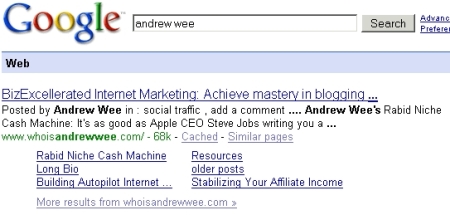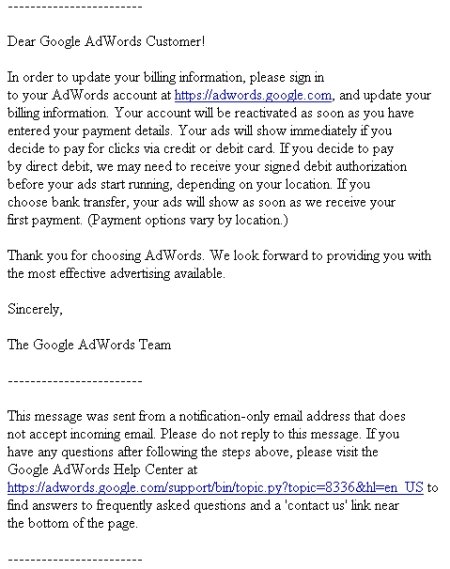Posts Tagged ‘Google’

Jeremy Palmer sent a twitter update that often discussed “Duplicate content penalty” has been refuted by Google in a recent webmaster central blog post.
So the word from big G! is:
Let’s put this to bed once and for all, folks: There’s no such thing as a “duplicate content penalty.” At least, not in the way most people mean when they say that.
There are some penalties that are related to the idea of having the same content as another site—for example, if you’re scraping content from other sites and republishing it, or if you republish content without adding any additional value. These tactics are clearly outlined (and discouraged) in our Webmaster Guidelines:
- Don’t create multiple pages, subdomains, or domains with substantially duplicate content.
- Avoid… “cookie cutter” approaches such as affiliate programs with little or no original content.
- If your site participates in an affiliate program, make sure that your site adds value. Provide unique and relevant content that gives users a reason to visit your site first.
If you weren’t already aware, a wordpress blog creates “duplicate content” just because of the way the pages are structured.
A “domain-name/page-1/” and “domain-name.com/blogging/2008/09/10/todays-post.html” might contain the same content. Unless you’re willing to spend a little time setting “no follow” tags on sections on your blog, you are already publishing duplicate content on the web.
I’m not overly disturbed that (more…)
Google search engine ranking team Google Fellow Amit Singhal published a blog post “Introduction to Google Ranking” at the official Google blog.
While not going into the specific nuts-and-bolts factors influencing SERPs (or search engine results pages), Amit outlined a number of broad principles to keep in mind when optimizing your web pages.
Principle 1: “Best locally relevant results served globally”
As I’ve earlier noted, your geographic location, specifically your IP number can determine the search results returned.
Amit’s assurance that they operate on the “no query left behind” principle, meaning every user query gets the most relevant results, is yet another assertion that the “user experience” more so than the affiliate marketer, SEO or even adwords advertiser’s interest is given priority.

If you’ve been following developments (and educated guesses) in the SEO field, you’ll know that meta criteria like “time on site” and other deeper level criteria from Google Analytics (and no doubt, Google own deeper level analytics, and possibly algorithms derived from basic analytics) are being incorporated into these ranking factors.
I applaud the SEOs who’re on the leading edge in following and sometimes trying to step ahead of Google to rank higher in the SERPs. For the average internet marketer, developing a long term sustainable business model and providing original, quality, link worthy content is probably the best route for now.
Principle 2: Keep It Simple
What’s simple to a UC Berkeley or Carnegie Mellon comp sci major might (more…)
In the aftermath of an aborted takeover of Yahoo!, Microsoft continues to remain the 800 lb gorilla in the tech industry. The question is where does it go from here?
There’s still talk about Microsoft working with Yahoo! on a collaboration for its search services, but really to leapfrog search engine leader Google, requires a paradigm shift. One possible avenue? The social media game.
Witness the fact that Google hasn’t done much with Blogspot/blogger in the last couple of years.
Services like Google’s Blog Search seemed like a half-hearted implementation.
That’s not to say that Microsoft and Yahoo! are exactly leading the field either.
The Web 2.0 space is still littered with their dying or dead blog services and communities.
A search at Microsoft’s Social Computing Group shows a number of interesting projects, but none really earth shattering to shift the field.

A couple of years ago, Microsoft spun off its own social network Wallop, to fanfare from Mashable and TechCrunch.
So what happened?
For sure, “cloud computing” still seems a distant reality, hobbled by a lack of compelling applications (in contrast, the Japanese with NTT Docomo’s I-Mode service do just about everything with their 3G phones which fold origami-like into small objects of art. Elsewhere in the world, cell phone users rejoice when they get restaurant recommendations or proximity locaters on their phones…).
It could be a good couple of years till (more…)
Looks like Twitter is fast becoming a victim of its own success.
Over the past weekend, the microblogging platform seems to have had a major bout of traffic/resource overload and indigestion and went offline for 48 hours or more.
When she came back, she came back sans direct messaging and pagination (I believe it refers to a backlog beyond your first page of tweets).
In addition to conserve resources, third party apps like Twhirl, can’t seem to do API calls more than once every 5 minutes.
This should take a number of steps to increase scalability and stability, although it will take quite a bit away from the “real time” nature of the hybrid IM/blogging type service.
Beyond being a juicy piece of M&A bait for one of the Google-Yahoo-Microsoft tirumvirate, I’m not sure if Twitter has a viable business model, beyond grabbing marketshare and mindshare for the microblogging space.
If you’ve thoughts on the issue, post your comments below:
I’ve been looking into this issue for some time, and noticed some trends in the results Google shows.
For “Andrew Wee” from a Singapore IP, here’s the result:

But if I do the same search using a US IP:

Spot the difference?
The expanded listing you see above are (more…)
I got this email over the weekend which looks like a genuine email from the Google Adwords team, mentioning that you need to authenticate your account because it’s been disabled/suspended.

Just about any PPC marketer will be concerned if they get an email like this because AdWords downtime could translate into a significant of profits.
Before you jump to the page and entering your account information, I checked that the HTML email was going to a *.cn (China-based) domain, so it would be pretty unwise to enter your username or your password.
Mozilla Firefox had earlier been patched with a “phishing site” notification, similarly Internet Explorer showed a similar warning when I tried to access the site.
Just take note of the destination URLs in your emails before clicking on them, also if needed view the message headers and you can usually spot their point of origination (unlikely that the Adwords team would be sending notification emails out of Africa or Russia).
There was also a port about this at KezNews.






